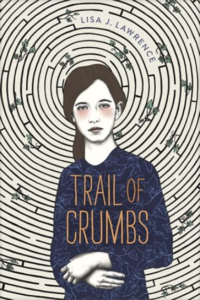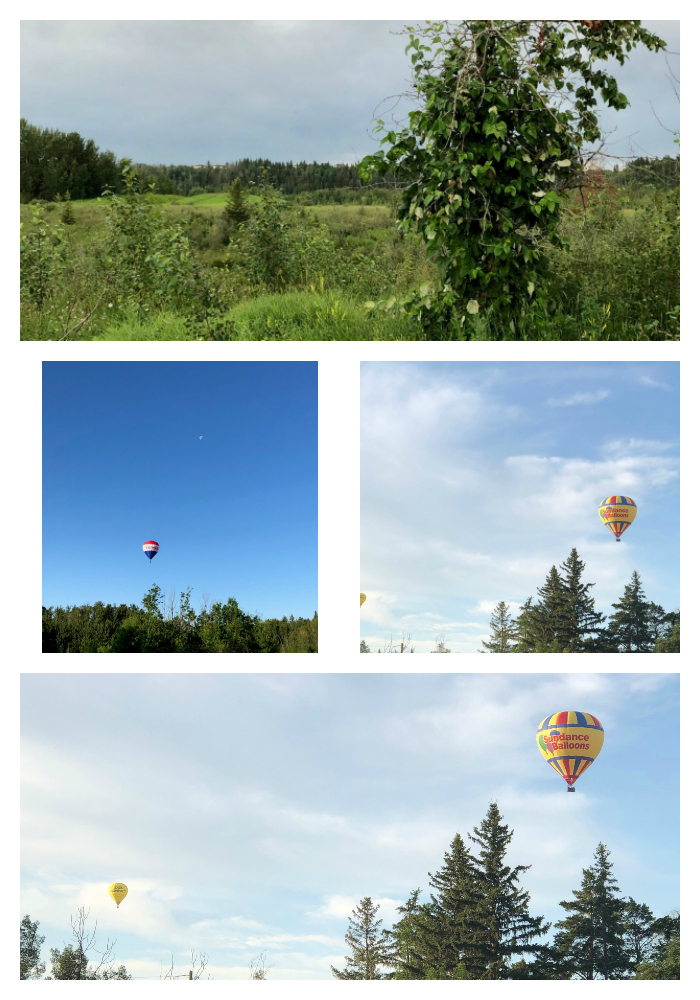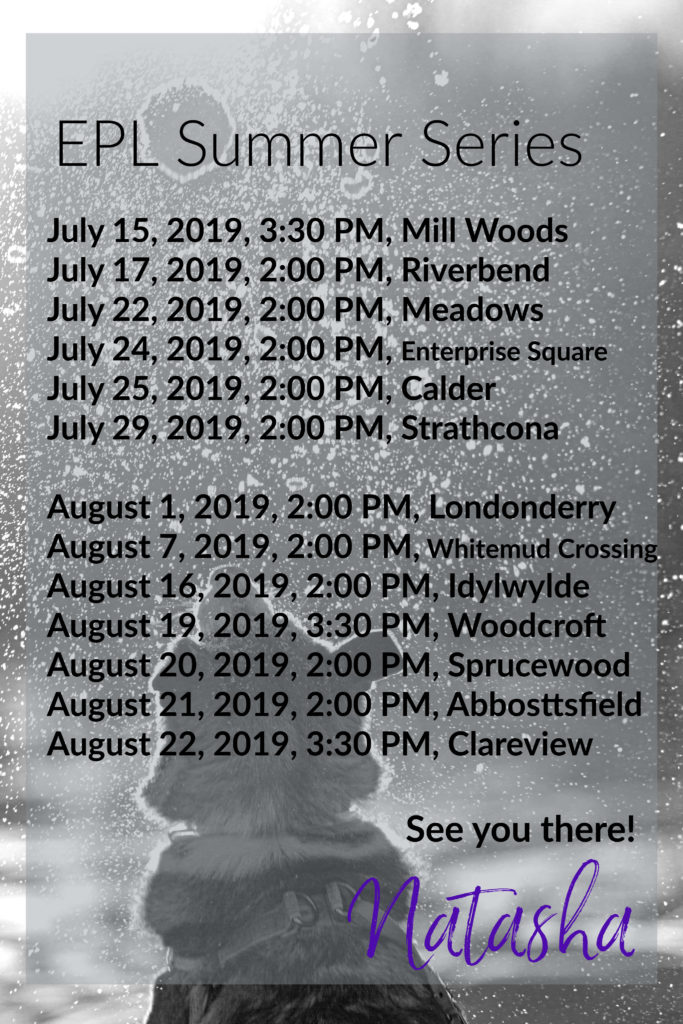In the Key of Nira Ghani gets a shout out on CBC
 Much thanks to Lisa J. Lawrence for giving a shout out to In the Key of Nira Ghani on CBC Radio’s Edmonton AM.
Much thanks to Lisa J. Lawrence for giving a shout out to In the Key of Nira Ghani on CBC Radio’s Edmonton AM.
Lisa’s bio: Lisa J. Lawrence grew up as a free-range kid in small towns in British Columbia and Alberta. She currently works as a writer and Spanish teacher in Edmonton, Alberta, where she lives with her husband and three children. Her first novel, Rodent, was nominated for numerous awards.
Her most recent book is Trail of Crumbs, available through booksellers and Orca Book Publishers.
As Summer Closes
As summer begins to draw the curtains, I’m grateful for hot air balloons, blue skies and rainy days, and beautiful deer hiding in the lush green.
Ack, I pulled a Wil E. Coyote
Yup, totally did it. I was writing, totally in draft mode, okay with this-is-horrendous-but-just-get-it-done-mode, getting in the word count…then I looked down.
By which, I mean, I started thinking about edits and beta readers and this was draft #6 and why wasn’t it ready, yet? And…then I fell off the cliff.
So, now I’m at the bottom, dusting myself off after 3 days of no writing, and getting ready to scale the mountainside and write, again.
From Theoretical to Practical
When I was a kid, they had the Canada Fitness Test, which was a series of six exercises (shuttle run, 1600 m run, etc.) designed to test the fitness of students, aged 6-18.
The shuttle run mystified me. Lie down on your stomach, hear the command, jump up and run to the bean bag (about 20 m away) (aka Spot 2), grab bean bag, bring it back to the starting position (aka Spot 1), drop it, pick up 2nd bean bag that’s at Spot 1, run back to Spot 2, drop the bean bag, pick up another bean bag, run back to Spot 1.
Every time I did it, I thought (1) it was a colossal waste of time (2) who would ever have to do something like this in real life? (3) it was a colossal waste of time.
Well, Canada Fitness, allow me to apologize, because it finally dawned on me that there **is** a practical application, and it goes like this.
- Start at midnight, while you’re sleeping on your stomach
- Hear the yowl of two kitties about to engage in active combat
- Jump up and run to where you think they are
- Realize they’re not there
- Pivot, run to the second spot.
- See them.
- Realize you forgot the spray bottle
- Pivot, run back to grab the spray bottle
- Run back to cats, shake the bottle (they hate the sound of water sloshing about).
- See cats scatter
- Check your heart rate
- Realize you’re not falling asleep again.
- Go and do some work
Working with the Masters – a small reminder
I often hear young writers talk about how great it would be to be mentored by So-and-So or to attend a talk by this-amazing-writer, but time and finances can be a burden.
And then, of course, you have those “if you really wanted it, you’d find a way,” folks that seem to forget people have families, jobs, etc.
So, just a small reminder that whomever you admire, you can always learn from them.
- Buy/borrow their book.
- Read it.
- Go back, pen and paper in hand, and jot down what happens in every scene (and thus, learn how they plot).
- Go back, pen and paper in hand, and jot down how they put in character or story clues (and thus learn how they put together characters and description).
- Go back, pen and paper in hand, and write down all the sentences that lifted you up (and thus learn how they use description to hook readers).
- Go back to page one, pen and paper in hand, and handwrite their first-five pages, and thus learn how they write their story.
A Few Mad Fools

Much thanks to Ava Woolf for inviting me to participate in her Twelve Questions Project, (“A FEW MAD FOOLS is a compendium of interviews with creatives in the arts that invites guests and readers to reflect on their relationship with creativity and their selves. Its goal is to increase the vibrancy and emotional health of creatives’ lives.”
My interview can be viewed here.
Oh, Dear…
Ah, yes, that moment when you’ve been ultra-focused on the manuscripts”so much so that your dinner grows cold and your bed even colder”and you find yourself looking down at the cup of tea you’ve been making, the stirring spoon in your hand, and you find yourself asking the all important question, “Is this the spoon for the tea or did I just use it to mix up The Girl’s wet/dry food combo, then plunge it into my cup?”
EPL Summer Series Schedule
You’ll want to double-check the time/date with the branches, but this is my summer schedule for the EPL’s Summer Series.
I’ll be talking about snow, dogs, stars, insects, and fairy tales, and how our stories make the world better. (I’ll also leave time toward the end for any writing-related questions). The sessions are open to all ages.
Hope to see you there!

Plenty of room in the boat
The struggle with the writing and manuscripts continue”a combination of actual story issues and then the issues I’m just making up because I apparently love to fret”but it’s interesting to me that a few of my other author friends are also experiencing the same thing. (The writing issues, I mean. I can’t speak to the other issues).
There are enough of us I joked that perhaps there was something in the water or perhaps a virus that only affects writers.
One of the questions I’m often asked from young writers is, “How do I get to where you are?”
There are many different answers, but the one thing I try to remember to tell them is to find a writing group. And if there isn’t one, make one. Because the industry is difficult, because you only have so much time in the day and it’s great to have a network to tell you about classes/opportunities. But mostly, because there are times when you’ll feel as though you’re all alone, the only person struggling with the writing while everyone is merrily typing away at the pages.
That’s when it’s great to have a group. To remind yourself that we all struggle, that we all hit bumps, and that we’re not the only ones out there truffle-hunting for words. We’re all in this together, and while it doesn’t make the industry any easier, it certainly makes it friendlier.
When the word count gets you
I’m working on a story for grades 3-6 and I was tracking my word-count-to-time-invested progress. By which I mean, I was writing and getting mad that an hour in, I was only at 225 words.
Then I had to remind myself of a few things
- There is no standard pacing when it comes to writing. Some days, the scene takes 10 minutes, some days it takes 10 hours.
- Writing shorter stories is an intense endeavour. As authors, we only have 5,000-7,000 words which means every word and action and thought has to count, which means there’s a lot of times we’re staring at the screen, trying to sort if we *really* need to say this thing or if we can skip it.
- There’s research in this story, so it’s not as though I’m solely writing. During the hour, I was also tracking down the information I needed, which eats time.
I find I can get so myopic with my writing”why isn’t it going faster/smoother/better. I’m glad I stopped today to ask myself what I was *really* doing, because it gave me a chance to see that even though the output may not look like much, there was a lot of input invested.
Natasha Deen | Copyright © 2024 All Rights Reserved | Privacy Policy

